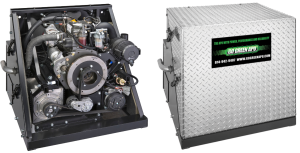Why APU Center Is the Go-To Source for Auxiliary Power Units and Diesel Comfort Solutions
APU
When trucking companies, owner-operators, RV owners, and fleet managers need reliable power, comfort, and efficiency during idle time, they turn to APU Center. Specializing in the sales, repair, refurbishment, and parts for Auxiliary Power Units (APUs), generators, and power accessories, APU Center delivers dependable solutions built for long performance and real-world demands.
What APU Center Specializes In
APU Center provides full-service solutions for:
- New, used, and refurbished Auxiliary Power Units
- APU parts, controllers, and electronic components
- Generators and inverters for trucks, RVs, and trailers
- Diagnostic testing, maintenance, and complete APU rebuilds
- Comfort and auxiliary power systems for a wide range of vehicles
From independent owner-operators to large commercial fleets, APU Center supports customers at every level.
Why APUs Are Essential for Modern Fleets and RV Owners
Idle restrictions are now common across the country, yet drivers still need power for heating, cooling, refrigeration, and electronics while parked. An APU allows operators to:
- Power heating and air conditioning without running the main engine
- Operate appliances and electronics during rest periods
- Reduce fuel consumption and engine wear
- Remain compliant with idle laws
- Maintain comfort in extreme temperatures
This results in lower operating costs, longer engine life, and greater driver comfort.
Expert Repairs, Refurbishing, and High-Quality Equipment
APU Center is not just a supplier — it is a fully equipped service provider. Their refurbishment and repair services include:
- Full APU diagnostics and troubleshooting
- Rebuilding and repairing APU controllers and motherboards
- Restoring used APUs to reliable working condition
- Providing affordable alternatives to brand-new systems
Their experienced technicians help customers minimize downtime while maximizing performance.
Who APU Center Serves
APU Center proudly serves a wide range of industries and vehicle types, including:
- Long-haul trucking fleets
- Independent owner-operators
- RV owners and travelers
- Utility and service vehicles
- Emergency response vehicles
- Horse trailers, pull-behind trailers, and specialty haulers
If your vehicle requires power while stationary, APU Center offers proven solutions.
Save Fuel, Reduce Wear, and Increase Comfort
Using APUs instead of idling the primary engine provides significant benefits:
- Reduced fuel consumption
- Lower maintenance and repair costs
- Extended engine life
- Improved driver comfort and safety
- Lower environmental impact
For fleets managing budgets and compliance—and individuals seeking reliable mobile power—APU Center delivers both performance and value.
Why Choose APU Center
- Full-service APU sales, repair, and refurbishment
- New, used, and budget-friendly refurbished inventory
- Decades of industry experience
- Trusted by fleets, RV owners, and commercial operators
- Reliable, tested equipment built for real-world use
When your comfort, power needs, and vehicle reliability matter, APU Center provides the solutions that keep you powered, compliant, and comfortable—mile after mile.




 ordinances.
ordinances. lubricated and functioning properly. This practice helps prevent issues like seizing or unnecessary strain on specific parts.
lubricated and functioning properly. This practice helps prevent issues like seizing or unnecessary strain on specific parts.
 hicles like long-haul trucks and RVs without the need to keep the main engine running. This functionality is especially important for saving fuel, reducing engine wear, and complying with anti-idling laws. Given the importance of an APU in maintaining vehicle efficiency and comfort, purchasing a used unit demands careful consideration. The market for used APUs can be daunting if you aren’t familiar with the specific aspects that need attention. Factors such as the unit’s specifications, physical condition, compatibility with your vehicle, and performance history are all crucial elements to examine. These considerations help ensure that the APU you choose will not only meet your power needs but also prove to be a reliable investment over time. By being thorough in your evaluation, you can make a more informed decision and avoid potential pitfalls. With so many variables at play, understanding these key areas can help you navigate the complexities of purchasing a used APU, ensuring that you get the best value for your money.
hicles like long-haul trucks and RVs without the need to keep the main engine running. This functionality is especially important for saving fuel, reducing engine wear, and complying with anti-idling laws. Given the importance of an APU in maintaining vehicle efficiency and comfort, purchasing a used unit demands careful consideration. The market for used APUs can be daunting if you aren’t familiar with the specific aspects that need attention. Factors such as the unit’s specifications, physical condition, compatibility with your vehicle, and performance history are all crucial elements to examine. These considerations help ensure that the APU you choose will not only meet your power needs but also prove to be a reliable investment over time. By being thorough in your evaluation, you can make a more informed decision and avoid potential pitfalls. With so many variables at play, understanding these key areas can help you navigate the complexities of purchasing a used APU, ensuring that you get the best value for your money.